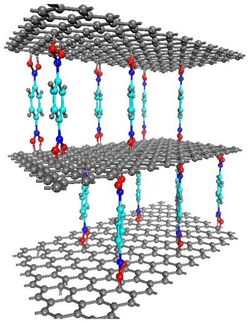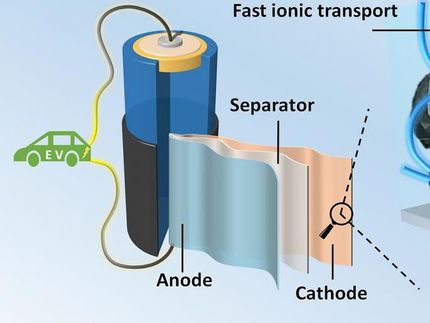The Application of Carbon Nanotubes and Graphene to Electronics
IDTechEx has just released a new report “carbon nanotubes and graphene for Electronics Applications: Technologies, Players & Opportunities” by Cathleen Macher.
Carbon nanotubes and graphene exhibit extraordinary electrical properties for organic materials, and have a huge potential in electrical and electronic applications such as sensors, semiconductor devices, displays, conductors and energy conversion devices (e.g., fuel cells, harvesters and batteries). In electronics, other than electromagnetic shielding, one of the first large applications for CNTs will be conductors. In addition to their high conductance, they can be transparent, flexible and even stretchable. Here, applications are for displays, replacing ITO; touch screens, photovoltaics and display bus bars and beyond. Companies that IDTechEx surveyed for the study report growth rates as high as 300% over the next five years.
Depending on their chemical structure, carbon nanotubes (CNTs) can be used as an alternative to organic or inorganic semiconductors as well as conductors, but the cost is currently the greatest restraint. However, that has the ability to rapidly fall as applications grow. Interest is high as CNTs have demonstrated to have carrier mobilities which are magnitudes higher than silicon, meaning that fast switching transistors can be fabricated. In addition, CNTs can be solution processed, i.e. printed. In other words, CNT will be able to provide high performing devices which can ultimately be made in low cost manufacturing processes such as printing, over large areas. Challenges are material purity, device fabrication, and the need for other device materials such as suitable dielectrics. However, the opportunity is large, given the high performance, flexibility, transparency and printability.
IDTechEx has researched 78 companies and academic institutions working on carbon nanotubes and graphene, all profiled in the report. While manufacturers in North America focus more on single wall CNTs (SWCNTs); Asia and Europe, with Japan on top and China second, are leading the production of multi wall CNTS (MWCNTs) with Showa Denko, Mitsui and Hodogaya Chemical being among the largest suppliers. The split of number of organizations working on the topic by territory is shown below.
A number of companies are already selling CNTs with metallic and semiconducting properties grown by several techniques but mostly as raw material and in limited quantities. However, the selective and uniform production of CNTs with specific diameter, length and electrical properties is yet to be achieved in commercial scale. A limitation for the use of CNTs in electronic applications is the coexistence of semiconducting and metallic CNTs after synthesis in the same batch. However, several separation methods have been discovered over the last few years.
There are still some hurdles to overcome when using printing for the fabrication of thin carbon nanotube films. There is relatively poor quality of the nanotube starting material, which mostly shows a low crystallinity, low purity and high bundling. Subsequently, purifying the raw material without significantly degrading the quality is difficult. Furthermore there is also the issue to achieve good dispersions in solution and to remove the deployed surfactants from the deposited films.
Graphene and MWCNTs are already in fairly high production – tens of tonnes per year. The amount of MWCNTs produced in 2008 was about 100 tons in total from companies such as Bayer and Showa Denko. In 2009 the amount delivered are expected to double. However, most of these uses are for non electronic/electrical products, or simple applications such as electromagnetic shielding. The commercialization of SWCNTs, relevant to all the electronics described in this report, is still in its infancy but progressing rapidly.
This new IDTechEx report focuses on the latest progress of applying these materials to electronics applications, covering activities of major developers, target markets, what is still needed and market potential.
Most read news
Topics
Organizations
Other news from the department business & finance
These products might interest you
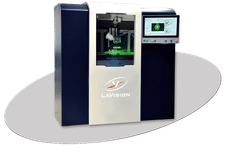
SprayMaster inspex by LaVision
Quality Control for Your Spraying Process Through Digital Spray and Particle Analysis
Reliable, Automated, Digital - The Geometry Measurement of Your Spraying Process in Real Time

FireSting-PRO by PyroScience
New fiber optic measuring device: Precise measurements even in the smallest volumes
Measure pH, oxygen and temperature even under sterile conditions

VEGAPULS | VEGABAR | VEGASWING by VEGA Grieshaber
Cyber-safe level measurement - here's how it works
Find out more about the unique sensor for liquid and solid media

Get the chemical industry in your inbox
By submitting this form you agree that LUMITOS AG will send you the newsletter(s) selected above by email. Your data will not be passed on to third parties. Your data will be stored and processed in accordance with our data protection regulations. LUMITOS may contact you by email for the purpose of advertising or market and opinion surveys. You can revoke your consent at any time without giving reasons to LUMITOS AG, Ernst-Augustin-Str. 2, 12489 Berlin, Germany or by e-mail at revoke@lumitos.com with effect for the future. In addition, each email contains a link to unsubscribe from the corresponding newsletter.
Most read news
More news from our other portals
See the theme worlds for related content
Topic World Battery Technology
The topic world Battery Technology combines relevant knowledge in a unique way. Here you will find everything about suppliers and their products, webinars, white papers, catalogs and brochures.

Topic World Battery Technology
The topic world Battery Technology combines relevant knowledge in a unique way. Here you will find everything about suppliers and their products, webinars, white papers, catalogs and brochures.
Topic world Synthesis
Chemical synthesis is at the heart of modern chemistry and enables the targeted production of molecules with specific properties. By combining starting materials in defined reaction conditions, chemists can create a wide range of compounds, from simple molecules to complex active ingredients.

Topic world Synthesis
Chemical synthesis is at the heart of modern chemistry and enables the targeted production of molecules with specific properties. By combining starting materials in defined reaction conditions, chemists can create a wide range of compounds, from simple molecules to complex active ingredients.
Topic world Sensor technology
Sensor technology has revolutionized the chemical industry by providing accurate, timely and reliable data across a wide range of processes. From monitoring critical parameters in production lines to early detection of potential malfunctions or hazards, sensors are the silent sentinels that ensure quality, efficiency and safety.

Topic world Sensor technology
Sensor technology has revolutionized the chemical industry by providing accurate, timely and reliable data across a wide range of processes. From monitoring critical parameters in production lines to early detection of potential malfunctions or hazards, sensors are the silent sentinels that ensure quality, efficiency and safety.
Last viewed contents

Combining nanotextured surfaces with the Leidenfrost effect for extreme water repellency
Zinc_oxide
Stearic_acid
Joint research project of BASF, Heidelberg and TU Darmstadt for printed electronics enters the next phase
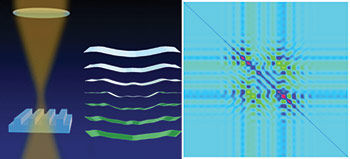
Measuring nanoscale features with fractions of light
Unlocking the Secrets of High-temperature Superconductors
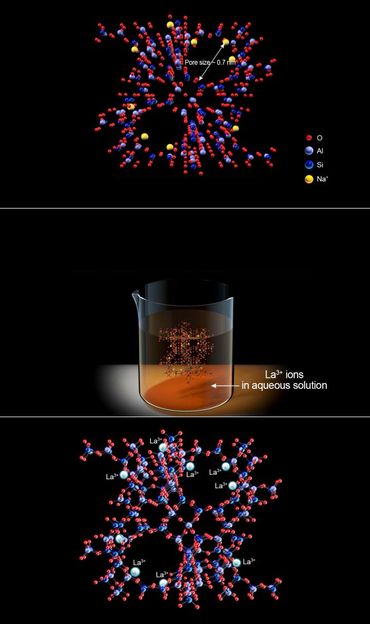
Synthesized microporous 3-D graphene-like carbons - Research team create carbon synthesis using zeolites as a template
Lunac_(alloy_and_trans-ceramic_coatings)

